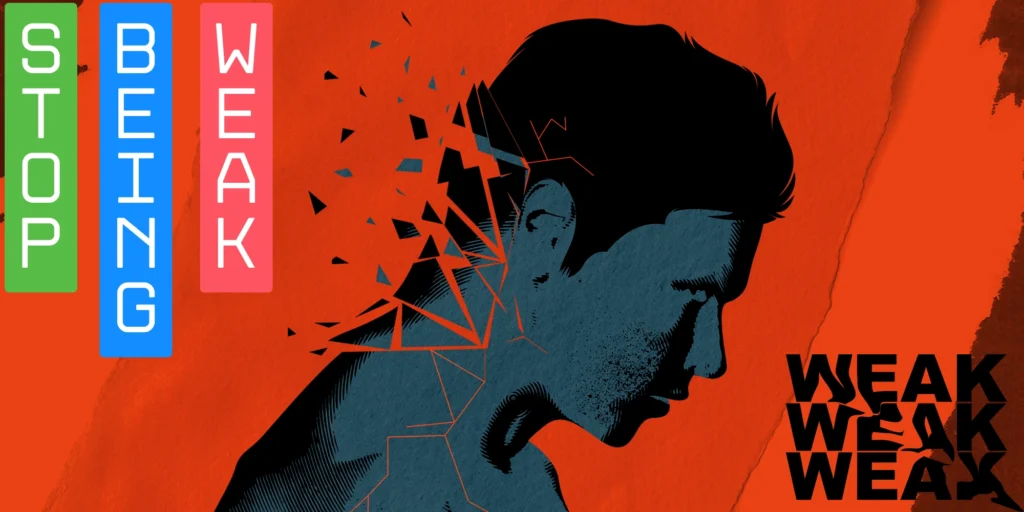
When it comes to emotions, men often walk a tightrope between societal expectations of toughness and their own natural vulnerabilities. While many may not openly express their feelings, even the strongest men encounter moments that leave them feeling vulnerable or feel weak. These experiences aren’t always dramatic or life-changing; more often, they’re the small, everyday instances that challenge emotional resilience and self-confidence.
In this article, we’ll dive into five common scenarios that can make men feel emotionally exposed or feel weak. We’ll also provide practical advice for navigating these moments with confidence and grace. Whether you’re a man who’s faced these challenges or someone who wants to better understand the men in their life, this guide is for you.
5 Simple Things That Make Men Feel Weak
1. Feeling Unable to Provide or Protect
One of the deepest instincts in men is the drive to provide for and protect their loved ones. When this ability is compromised—be it through financial struggles, unforeseen circumstances, or personal limitations—it can deeply affect their confidence and sense of identity.
Example:
John, a dedicated father and husband, loses his job due to company downsizing. Despite his best efforts to find new employment, months pass, and the family’s savings start to dwindle. John’s feelings of inadequacy grow, fueled by the pressure to maintain stability for his family.
Why It Happens:
Cultural norms often link masculinity with being a provider and protector. When a man feels he’s falling short in these areas, it can trigger feelings of failure.
How to Handle It:
- Reframe the Narrative: Understand that setbacks are part of life and don’t define your worth. Focus on your efforts rather than the outcome.
- Seek Support: Share your challenges with your partner or trusted friends. A strong support system can provide emotional relief and practical advice.
- Take Action: Break the problem into smaller steps. For instance, upgrading your skills with affordable online courses, such as this popular job skills course, can be a great start.
2. Facing Rejection in Love or Friendship
Rejection—whether in romantic relationships or friendships—can cut deeply, often leaving men feeling unworthy or inadequate. While everyone experiences rejection at some point, societal pressure on men to be “strong” can make it harder for them to process and move on.
Example:
Mike spends weeks building up the courage to ask his long-time crush on a date. When she politely declines, he feels crushed and begins doubting his charisma and attractiveness.
Why It Happens:
Rejection challenges one’s sense of belonging and desirability. For men, this is often compounded by the expectation to initiate relationships, which increases their exposure to rejection.
How to Handle It:
- Don’t Take It Personally: Remember, rejection often reflects the other person’s circumstances or preferences, not your worth.
- Find Growth Opportunities: Use rejection as a chance to reflect and grow. For example, improving communication skills with self-help books like this best-selling guide can boost your confidence.
- Keep Moving Forward: Every rejection brings you closer to the right connection. Stay persistent and open to new opportunities.
3. Showing Emotion in Public
Crying at a heartfelt movie scene or expressing frustration in a social setting can leave many men feeling exposed. Despite the fact that emotions are a natural part of being human, societal norms often discourage men from openly expressing them, especially in public.
Example:
During a family wedding, Kevin tears up while giving a speech about his late grandfather. Although the moment is heartfelt, Kevin feels embarrassed and quickly tries to compose himself.
Why It Happens:
Generations of cultural conditioning have led to the stereotype that vulnerability equals weakness. As a result, men may feel pressured to suppress their emotions.
How to Handle It:
- Own Your Emotions: Acknowledge that expressing emotions is a sign of strength, not weakness. It shows authenticity and courage.
- Surround Yourself with Understanding People: Share your feelings with those who appreciate emotional honesty.
- Normalize Vulnerability: Challenge stereotypes by embracing moments of vulnerability. You can also explore books or movies that celebrate emotional authenticity.
4. Experiencing Failure
Failure can strike at the core of anyone’s self-esteem, but for men who tie their identity to accomplishments, it can feel especially devastating. Whether it’s a career setback, a failed project, or a personal disappointment, failure often feels like a reflection of one’s worth.
Example:
James dedicates months to training for his first marathon. On race day, a severe cramp forces him to stop halfway through. The disappointment overshadows his hard work, leaving him feeling like he’s let himself down.
Why It Happens:
Many men internalize the belief that their achievements define their value, making failures feel deeply personal.
How to Handle It:
- Celebrate the Effort: Acknowledge the hard work you put in, even if the result wasn’t what you hoped for.
- Learn from the Experience: Reflect on what went wrong and use it as a lesson for the future.
- Set Realistic Goals: Break larger goals into smaller, achievable steps. Consider using tools like this goal-setting planner to stay on track.
5. Feeling Unappreciated or Ignored
Everyone craves recognition, but when men feel their efforts go unnoticed—whether at work, in relationships, or within their social circles—it can lead to frustration and feelings of inadequacy.
Example:
Despite consistently going above and beyond at work, Tom’s boss never acknowledges his contributions. Feeling invisible, Tom begins to question his value in the workplace.
Why It Happens:
When appreciation is lacking, it undermines one’s sense of purpose and belonging.
How to Handle It:
- Advocate for Yourself: Politely communicate your desire for feedback or recognition. For example, you might say, “I’d love to know how my contributions are impacting the team.”
- Practice Self-Appreciation: Celebrate your own achievements, big or small. Treat yourself to something meaningful, like this relaxing self-care gift set.
- Consider a Change: If consistent efforts go unnoticed, it may be time to evaluate whether your environment aligns with your values and goals.
Why Vulnerability Isn’t a Weakness
Emotional vulnerability is not a flaw—it’s a fundamental part of the human experience. These moments, though challenging, offer opportunities for growth, connection, and self-discovery. By embracing vulnerability, men can build deeper relationships, greater self-awareness, and a more resilient mindset.
Conclusion: Strength in Vulnerability
Feeling weak or vulnerable doesn’t diminish your strength—it’s what makes you human. Life is full of challenges, and how you navigate them shapes your character. Instead of avoiding or suppressing moments of vulnerability, view them as opportunities to grow stronger and more self-assured.
Remember, true strength lies not in avoiding emotions but in facing them with courage. Whether you’re seeking to better understand yourself or support the men in your life, embracing vulnerability is a powerful step toward emotional resilience and fulfillment.















